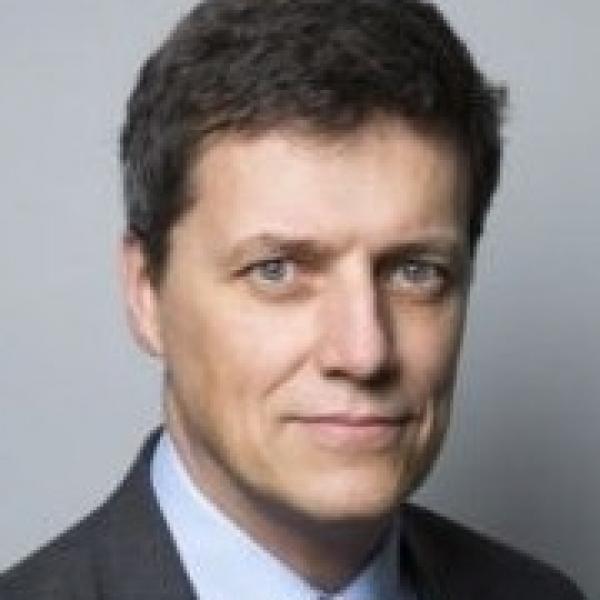We do not only sell for a profit, but we also sell for a purpose
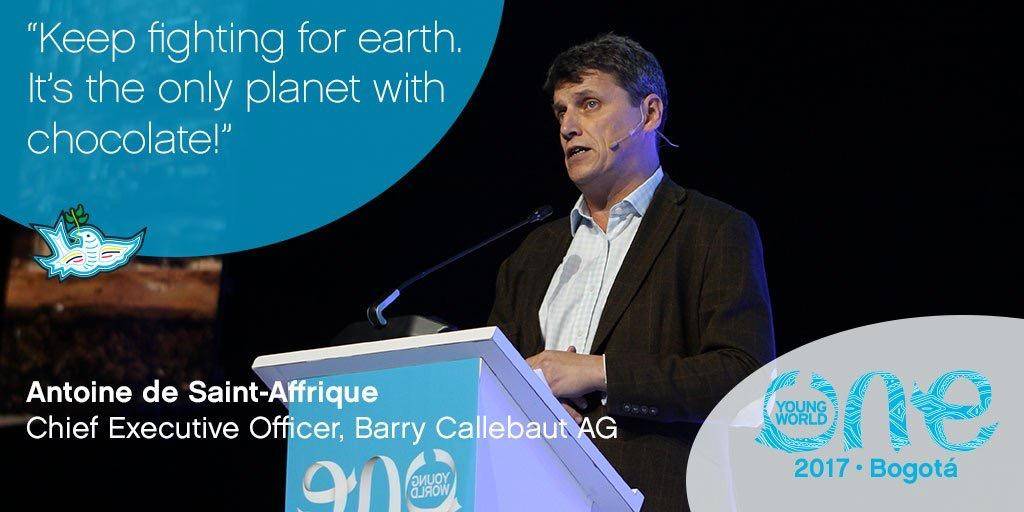
We do not only sell for a profit, but we also sell for a purpose
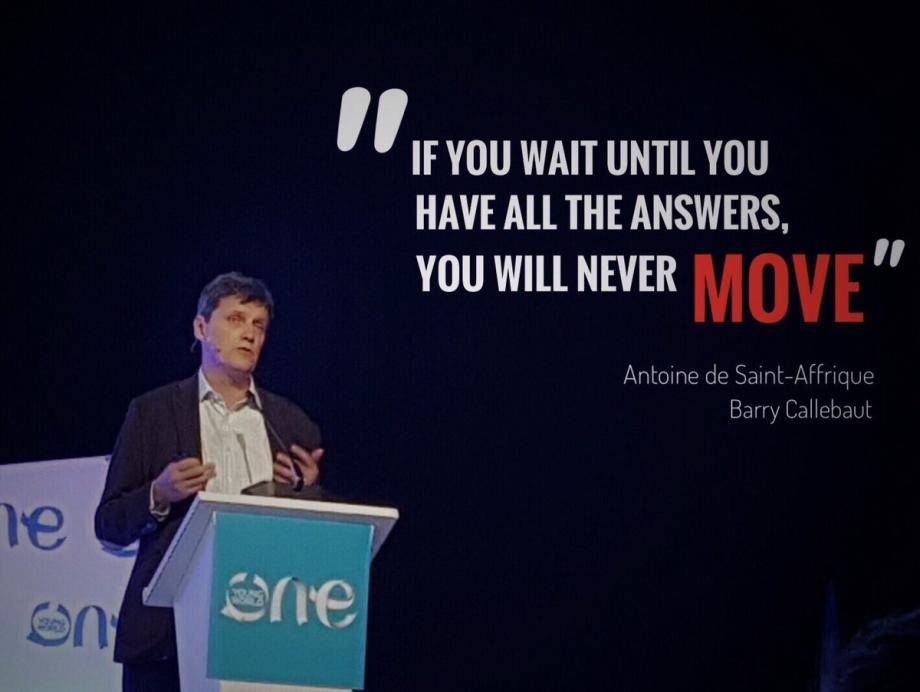
Good morning everyone. I’m delighted to be this morning with you in Bogota. I think that One Young World is an extraordinary forum and one which has the power to change the world for the better.
Kate asked me to tell you a few words on why I believe companies can and must have a key role in alleviating poverty, and share some of what my company is doing. Before I do so, let me share a simple belief: business cannot prosper if the society in which it lives does not prosper. The fate of one is linked to the other. But as importantly I am convinced that companies can and should contribute to poverty alleviation in a way that has nothing to do with charity, but in a way that makes good business sense. And when things make good business sense, they tend to happen faster and be sustainable over time.
So, in the next 10 minutes or so,
-
I am going to share with you why I believe alleviating poverty is possible, certainly in the agribusiness.
-
I am going to share with you what my company, my teams, myself are doing about it,
-
and, most importantly, I will ask you to join: not to be spectators, not to be commentators, but to join.
Alleviating poverty is possible - I saw it happening
But let me start at the beginning: Why I believe that alleviating poverty in one generation is possible? It is very simple: I have seen it happen twice in my lifetime. I have seen it in the last 15 years when, through the drive which was put behind the millennium development goals, extreme poverty has been halved. It is only half and there is another half to go, but it is a lot of people. And it is not a bad start.
The other time goes back to my childhood. I had my very first job when I turned 7. It was just a summer job but I was incredibly serious about it. I was going to get my first salary. I became a farm boy somewhere in the South of France.
Believe it or not but 45 years ago over there, there was no running water on the farm. You would depend largely on homegrown vegetables and cattle for your daily living and you’d save the money of the crop for harder times: a roof falling, a tractor needing repairs, a health issue. Agribusiness companies were making money, but not necessarily the farmers.
I still visit this farm. And when you go there now, you see 4 wheel drives, you see large screen TVs and GPS assisted tractors: it is definitely wealthier.
And what is important is that its farmers are wealthier as a result of a joint effort to transform the ecosystem: changing property rights to make the farms bigger, better technology to increase yields, easier access to credit, better collaboration between cooperatives and traders and access to higher education for farmers children. Things we are now taking for granted...
And that’s my first message to you: Things can happen, but no one alone has the solution. You need to think at the scale of an ecosystem, you need to think end to end, you need to think teaming up with others.
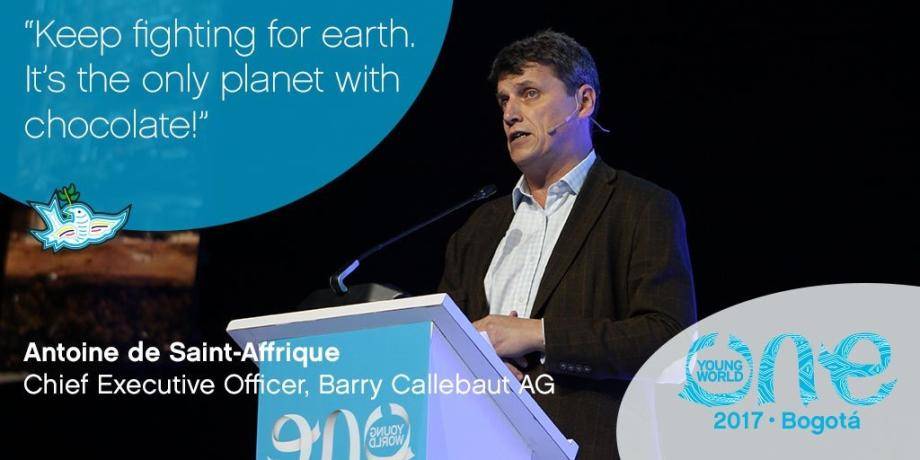
Now, how does this apply to today’s world, how does it apply to my company, and what do we do about it?
I run one of the coolest companies in the world with one of the best business models in the world. First, my company sells a great product: chocolate. And we sell lots of it: About one out of 4 chocolate and cocoa products consumed in the world contains Barry Callebaut.
But that’s not all: We do not only sell for a profit, but we sell for a purpose. 50% of the dividends we pay to our shareholders go to education and a large chunk of it goes to education in Africa. So the model is very simple: the more we sell, the more we give back.
So we could seat happily, selling lots of chocolate and cocoa, doing good as we do well. But, we decided this is not good enough. Because the cocoa farmers from which we buy for a large part live in misery. A poverty much worse than the one I experienced 45 years ago in France. And their kids work in the fields. Not the kind of work I was doing. Work that threatens their health and prevents a number of them from going to school.
So you cannot turn a blind eye to this. You cannot for obvious moral reasons. You also cannot for very practical reasons. If farmers do not earn a living, they keep clearing the tropical forest for new farmland. There will be no forest left, and there will be no rain for cocoa. If farmers do not earn a living their kids will continue to work the fields instead of attending school. If the farmers do not earn a living, they won’t replant cocoa trees and eventually, there will be no more cocoa beans. And then there will be no chocolate.
That is why a year ago we decided to launch a movement with the ambition to make sustainable chocolate the norm by 2025. We call it ‘Forever Chocolate’.
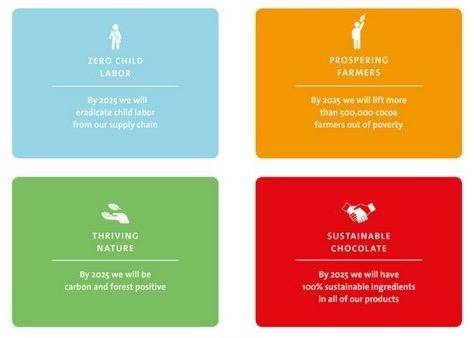
‘Forever Chocolate’ - our four bold targets to reach by 2025
We set it as a goal to address four issues by 2025, which one way or the other relate to poverty alleviation in the ecosystem of our company:
- It starts with farmer income: We want committed to bringing half million farmers out of poverty. If you fail to do that, none of the rest will follow.
- Tackling farmer poverty is essential to eradicate the worst forms of child labor. One is clearly the consequence of the other.
- And the same goes for deforestation: to avoid that the smallholder farmers go further in the forest in search of new land, they need to increase productivity on their existing land and therefore their revenues.
- And what applies to cocoa applies to many other chocolate ingredients hence our goal to source all ingredients sustainably.
When we set these four targets with clear and somewhat bold metrics – there were a few things we were fully aware of:
First of all, whilst we are sticking our neck out, we cannot do it alone: we need competitors, government, NGO’s to pull in the same direction. Don’t get me wrong: there are plenty of things we can do.
-
Last year we trained 157,000 cocoa farmers including over 10,000 women farmers, in good agricultural practices, as well as awareness raising on child labor.
-
We are implementing a cloud-based farm data management system across 65,000 farmers allowing us to be in contact with farmers in near real time, offering an unprecedented level of transparency in the sourcing of our cocoa beans.
-
We sourced from over 147,000 farmers through Biolands, our direct sourcing organization, allowing us to engage with farmers and support them by providing training, fertilizers, services, and assistance in the production of certified cocoa.
But we can increase our impact a lot more if other stakeholders jump in: Governments when it comes to building infrastructure, enforcing legislation, constructing schools, ensuring safety, but also access to the right seedlings. Like-minded companies - including competitors to go faster to critical mass. NGOs to measure keep raising awareness and drive for impact. The farmers themselves as they will need to change some of their practices and needs to be up to if or it.
Number 2, we are sticking our neck out without having all the answers. Actually, in a number of cases, we have the target, but we don’t have the solution yet. This is a risk, but I am not too worried about this: if you wait until you know all the answers, you’ll never move. Being in motion forces you to find solutions.
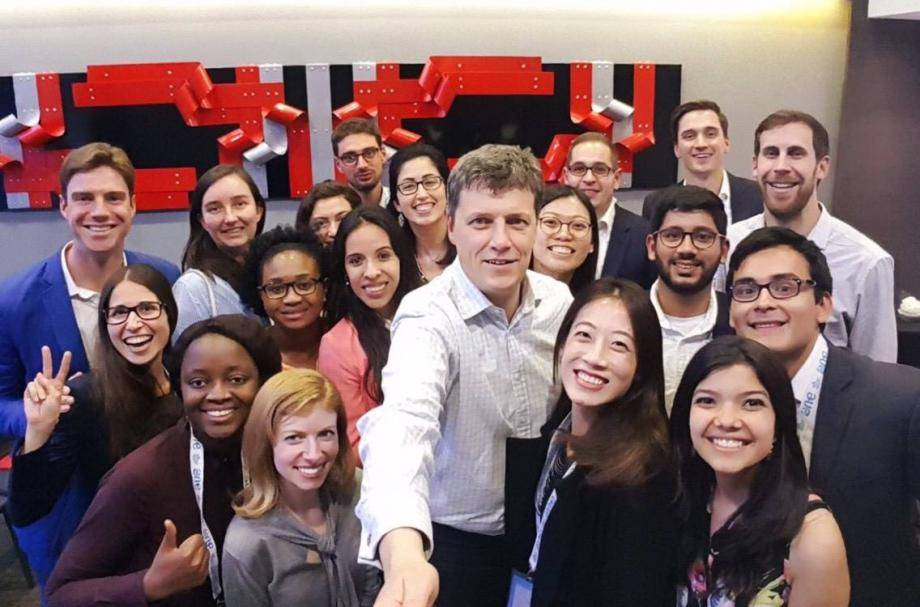
#WeFie: Antoine de Saint-Affrique with Barry Callebaut's One Young World delegation in Bogota, Colombia.
Get your hands dirty and play your part
And this brings me to my last point: What role can you play? What role should you play? How do you step in and unleash the incredible power of the voice of the youth?
My call to you is to come on the pitch, get your hands dirty and play your part. Join companies that are a force for good and help them to get better. There are many of them out there. They need you, and you need them to have a greater impact. Challenge them but also contribute, make your own mark.
And if you are not up for those companies, start your own: Be an innovator and bring us solutions we have not thought of. Be social entrepreneurs and help shape the ecosystem.
Whatever you choose to do, choose to act: there is no more time to comment from the sidelines. We need action.
So, getting back to ‘Forever Chocolate’, this is the journey we have embarked on. One year into the journey we feel excited - as we think we are doing the right thing and we do believe we can lead a movement which will transform the industry for the better. We also still have a good amount of respect the tasks at hand and as we know we lack some of the answers. And we feel extraordinarily determined - determined to make things move because if things do not move chocolate will become an expensive treat for the few, rather than the many”. And if this happens we won’t be able to pour enough money into education each year, then, everybody will have lost.
So please join us on our journey, do it either through business or with business-like discipline. And keep fighting to save the Earth. It is the only planet with Chocolate.
Thank you!
